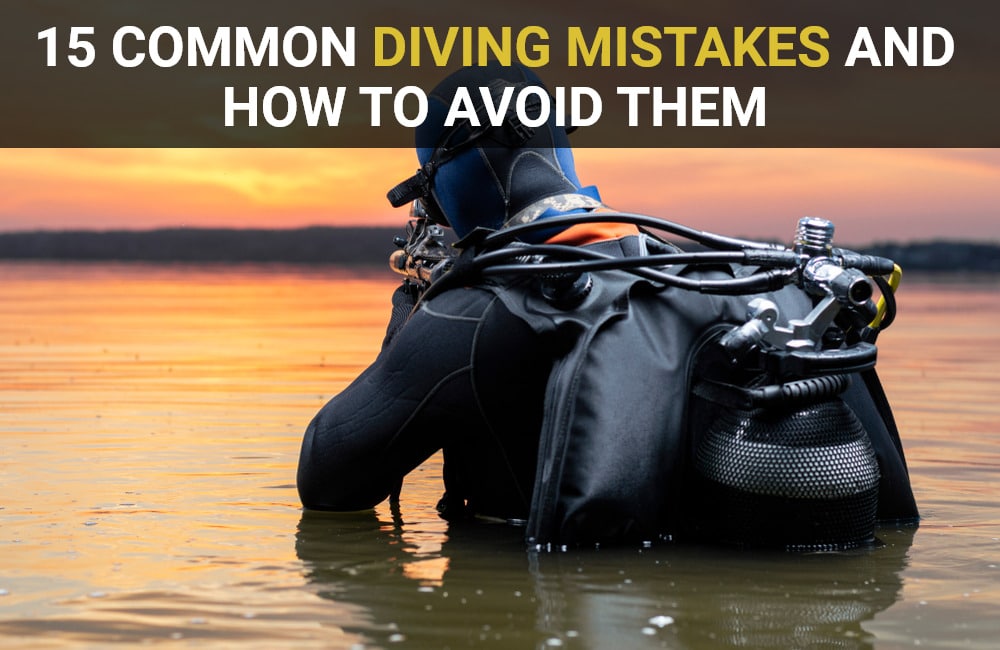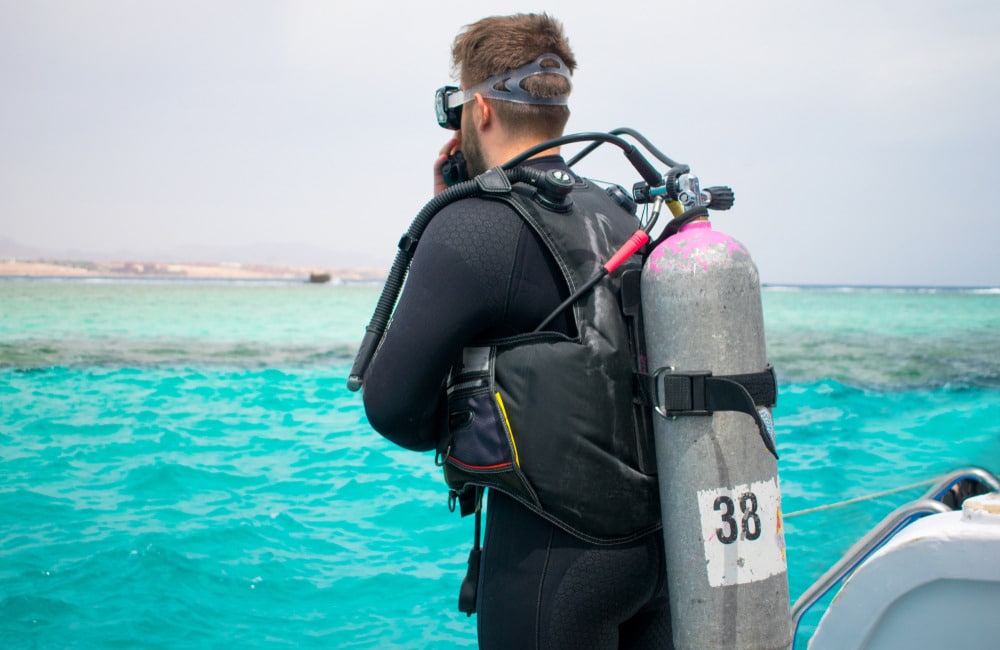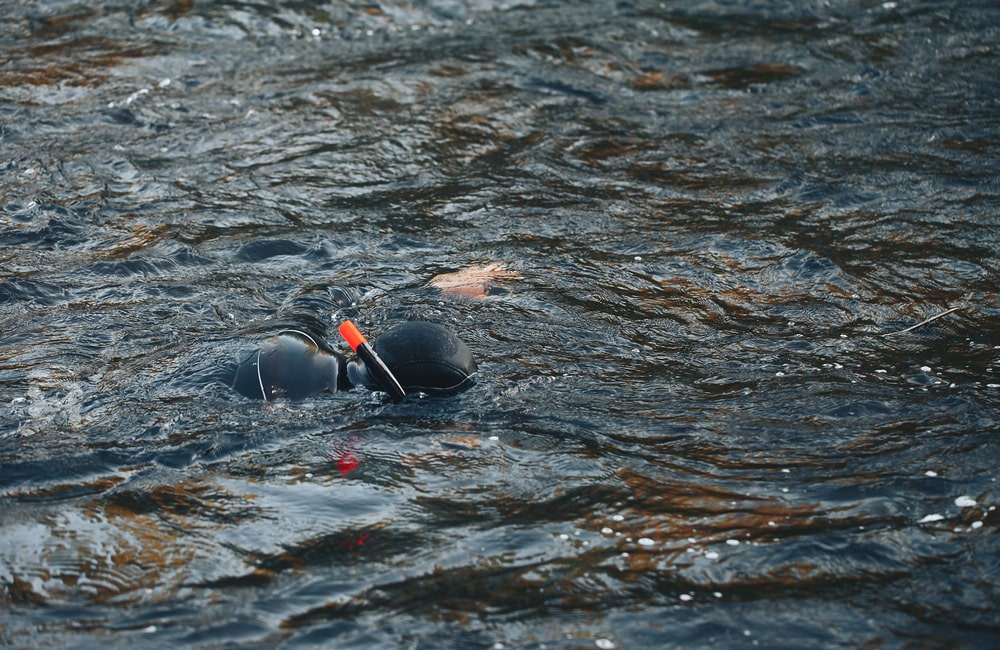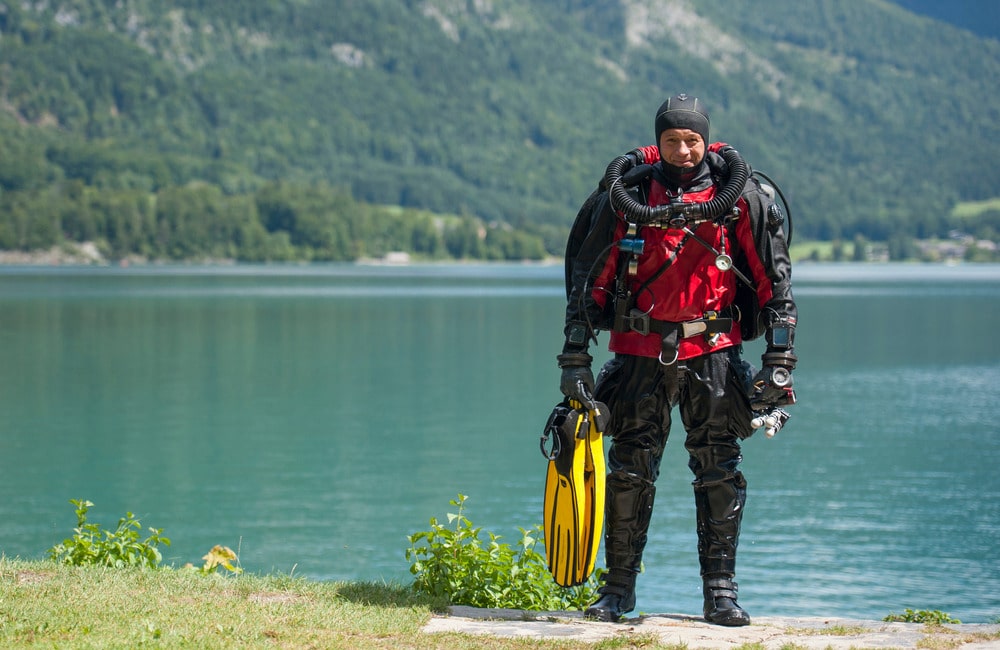Blog
15 Common Diving Mistakes and How to Avoid Them
Diving is an incredibly thrilling and exceptionally gratifying activity that provides an abundance of joy and adventure. However, it is crucial to be aware of certain risks that come along with this exhilarating sport. By understanding and identifying common mistakes, divers can take proactive measures to ensure their safety and enhance their overall experience. Whether you are a beginner who is just starting or a seasoned diver with years of experience, acquiring knowledge about these prevalent diving mistakes and implementing strategies to avoid them will undoubtedly contribute to improving your safety and maximizing your enjoyment during your underwater explorations.
With that in mind, let’s delve into a comprehensive overview of the most frequently encountered diving blunders and the effective strategies to steer clear of them.
Mistakes Before A Dive
1. Not checking your gear
Your diving equipment is your lifeline underwater; neglecting its maintenance can lead to critical failures during a dive. Regularly inspect and service your gear, including regulators, BCDs, and dive computers, to ensure they function correctly and can withstand the demands of the underwater environment.
Before a dive, make sure all of your gear is functioning correctly, and you have all the necessary pieces before heading out on a dive. This includes checking for any tears or leaks in your wetsuit, ensuring your regulator is correctly assembled, and ensuring your BC inflates and deflates correctly.
2. Neglecting to warm up
Before embarking on any diving adventure, ensuring you are in good physical condition is paramount. Neglecting health and fitness can lead to potential risks underwater, such as increased fatigue, reduced air consumption, and impaired decision-making.
Start with some light stretching exercises while underwater to ensure you’re not overstretching yourself once you reach greater depths. Adapting gradually to changes in pressure helps reduce strain on muscles and joints.
3. Not accounting for current conditions
Dive planning is crucial in ensuring a safe and enjoyable diving experience. Failing to conduct thorough dive planning, including assessing current conditions, depth limits, and exit strategies, can result in disorientation, running out of air, or even decompression sickness. Take the time to plan meticulously and always have a contingency plan in place.
Before diving into a new area, always be aware of water temperatures, tides, currents, visibility levels, etc. It’s essential to be aware of any potential risks so you can make the best decisions for your safety.
4. Skipping a Predive Safety Check
Just like a pilot performs a walk-around to check a plane’s condition before take-off, divers should always perform predive safety checks. These consist of checking all dive equipment and conducting an air check.
Performing a predive safety check, also known as the buddy check or pre-dive buddy inspection, is vital before entering the water. Skipping this essential step can lead to equipment issues or overlooked safety concerns that may jeopardize your dive. Always take the time to conduct a comprehensive predive safety check with your buddy.
Mistakes During A Dive
1. Lack of Buddy Communication
Ensuring effective and continuous communication with your dive buddy is of utmost importance when it comes to safety and maximizing enjoyment during underwater excursions. Neglecting to establish straightforward communication methods while submerged can result in potential dangers such as separation, disorientation, or missed chances to share awe-inspiring underwater discoveries. By employing pre-determined hand signals and consistently updating your dive buddy on crucial information such as your remaining air supply, intentions, and any potential issues, you can significantly enhance your dive’s safety and overall experience. It is imperative to maintain visual contact with your dive buddy at all times and utilize hand signals to verify directions or make decisions. You can create a solid foundation for a successful and fulfilling underwater adventure by prioritizing open and reliable communication with your dive buddy.
2. Incorrect Weighting
Proper weighting is essential for buoyancy control and ensuring your comfort and safety during the dive. Being overweight can lead to difficulty in maintaining buoyancy, increased air consumption, and unintentional damage to fragile marine life.
Make sure you have the correct amount of weight on your belt so you don’t sink too fast or float up too quickly. Being correctly weighted is essential for maintaining buoyancy and safety during a dive.
3. Not Equalizing Soon Enough
Equalizing your ears is vital to prevent ear barotrauma and discomfort while descending. Failing to equalize early and frequently enough can lead to painful ear injuries, potentially cutting your dive short. Learn and practice different equalization techniques, and start equalizing before you feel discomfort.
Equalizing is especially important for divers who are descending into greater depths. Make sure to equalize your ears as soon as you descend, and continue throughout the dive to reduce ear pressure.
4. Incorrect Positioning Towards Other Divers
Maintaining proper positioning in the water concerning other divers is crucial for safety and avoiding entanglement or collisions. Always be aware of your surroundings, practice reasonable buoyancy control, and give other divers enough space to prevent accidents and disturbances.
Always keep a safe distance from other divers to avoid potential accidents. Remember to stay at least three meters away, and never swim or hover directly above another diver.
5. Lack Of Buoyancy Control
Buoyancy control is a fundamental skill in diving, and failing to master it can lead to multiple issues. Poor buoyancy control can cause damage to delicate marine life, create safety hazards, and result in an overall less enjoyable dive experience. Practice buoyancy control regularly to become a skilled and responsible diver.
Maintaining neutral buoyancy is vital to enjoying a safe dive. Make sure to practice good breathing techniques and focus on keeping your body in line with the water column.
6. Using the BCD Inflator Too Much
Over-reliance on the BCD inflator to adjust buoyancy can lead to rapid ascents or descents, jeopardizing your safety and the safety of others. Learn to use short breaths and your lungs to control your buoyancy more precisely, minimizing the need for frequent BCD adjustments.
Over-inflating your BCD when ascending can cause an uncontrolled ascent, which can lead to decompression sickness. Use the inflator sparingly and focus on maintaining buoyancy with breathing techniques instead.
7. Diving Beyond Your Training
It is crucial to highlight the importance of not pushing your limits and exploring depths beyond your training and certification level. Engaging in such activities poses significant risks, including panic, inadequate skills to handle challenging situations, and an increased likelihood of accidents. It is always advised to stay within the boundaries of your training and experience, dedicating yourself to continuing education and advancing your diving abilities safely. Remember, the temptation to surpass your knowledge can jeopardize not only yourself but also others who are involved in your diving endeavors.
8. Running Out of Air
Always plan your dive profiles so you don’t run out of air before returning to the surface.
Running out of air is a critical mistake that can result in an emergency ascent or a compromised safety stop. Monitor your air supply throughout the dive and be ready to ascend if needed. Adhere to the rule of thirds, reserving one-third of your air for the return journey. When reaching specific air supply limits, signal your buddy and plan for a safe ascent together.
Mistakes After A Dive
1. Not Taking Personal Responsibility
Even after a successful dive, complacency can lead to carelessness in handling equipment and following safety protocols. Always take personal responsibility for your gear and adhere to post-dive care guidelines to ensure your equipment remains in optimal condition for the next dive.
Make sure you’re aware of the local regulations and guidelines before each dive and practice good judgment at all times. Do not forget to debrief after a dive. Debriefing after a dive is an integral part of understanding what went well and where improvements can be made. Go over each diver’s experience with them to ensure everyone understands what happened and how they can improve for future dives.
2. Shorter Surface Interval
Make sure you’re following the correct surface interval times after each dive. Failing to allow yourself enough time to decompress can lead to severe problems, so always be aware of local guidelines and your own limits.
Respect the required surface interval between dives to give your body sufficient time to off-gas and recover before immersing yourself underwater again.
Moreover, after a dive, remember to replenish your oxygen levels before heading back into the water. If you feel any symptoms of nitrogen narcosis during or after a dive, seek medical attention immediately. Your safety should always be a priority.
When it comes to diving safety, avoiding these common mistakes is vital in ensuring an enjoyable and safe adventure for everyone involved. By paying close attention to your gear, doing warm-up exercises beforehand, being aware of local conditions before entering the water, and following all safety protocols, you can ensure that you have a safe and enjoyable experience. Remember, continuous learning and adherence to safety practices are the keys to becoming a skilled and responsible diver.
Happy diving!



